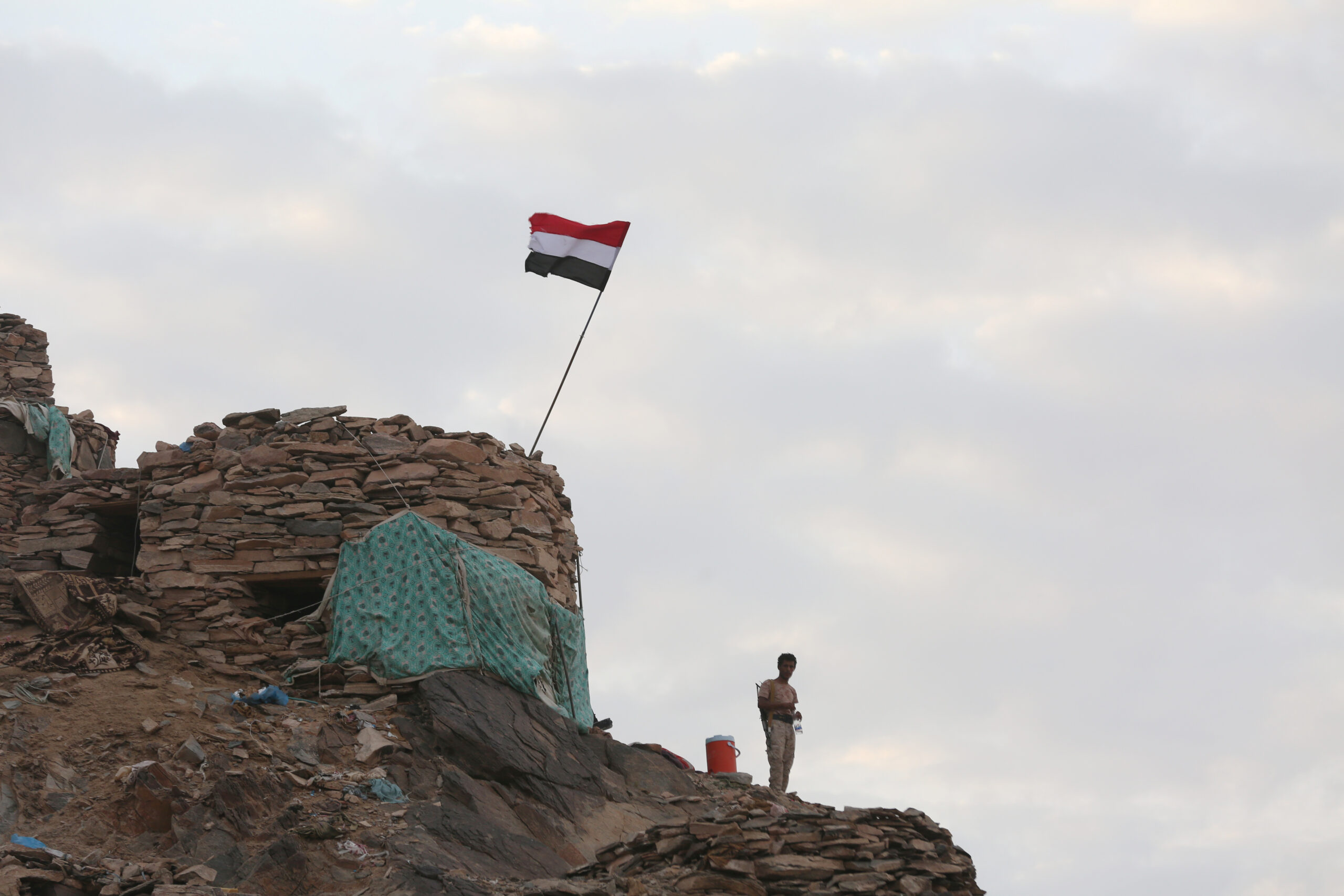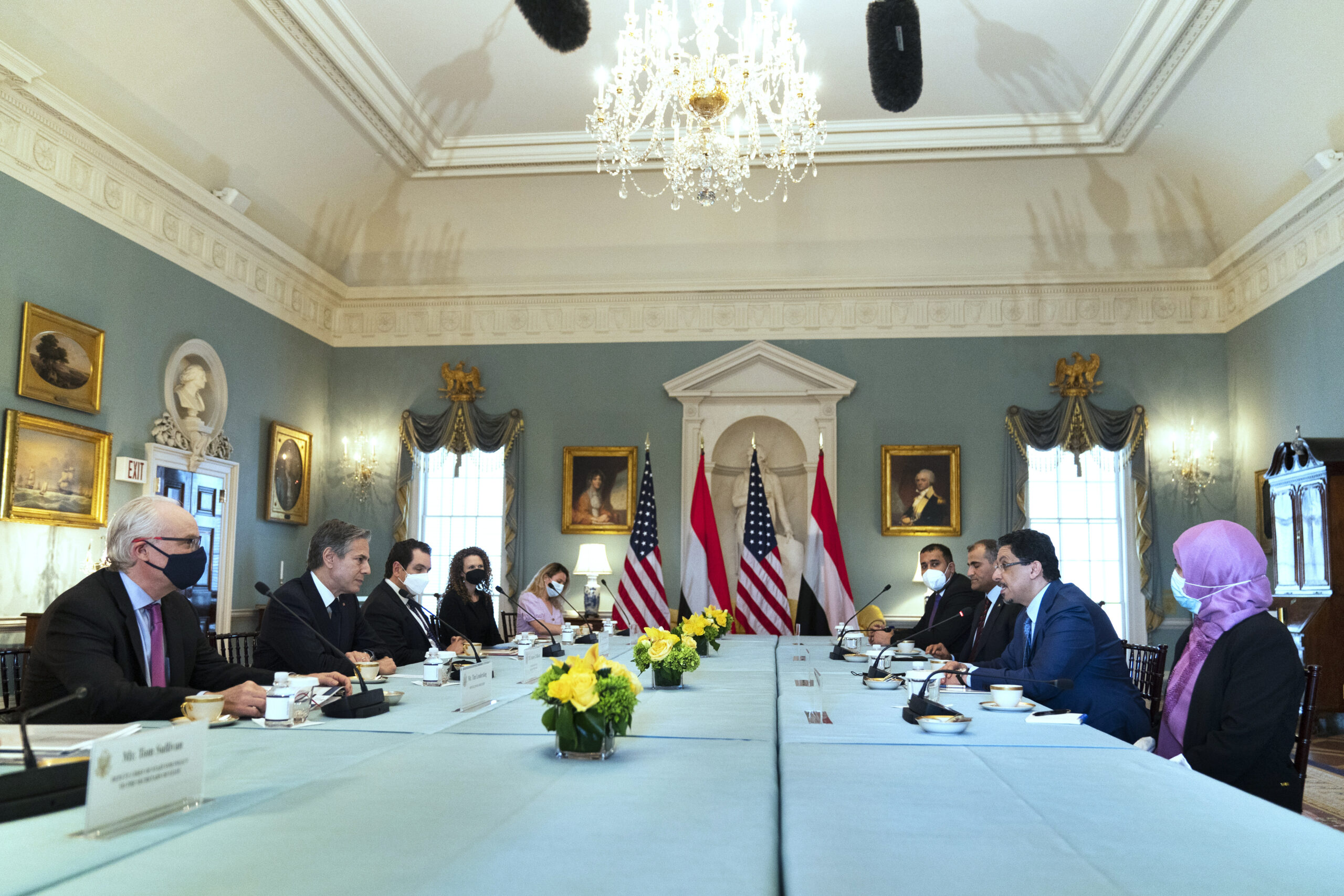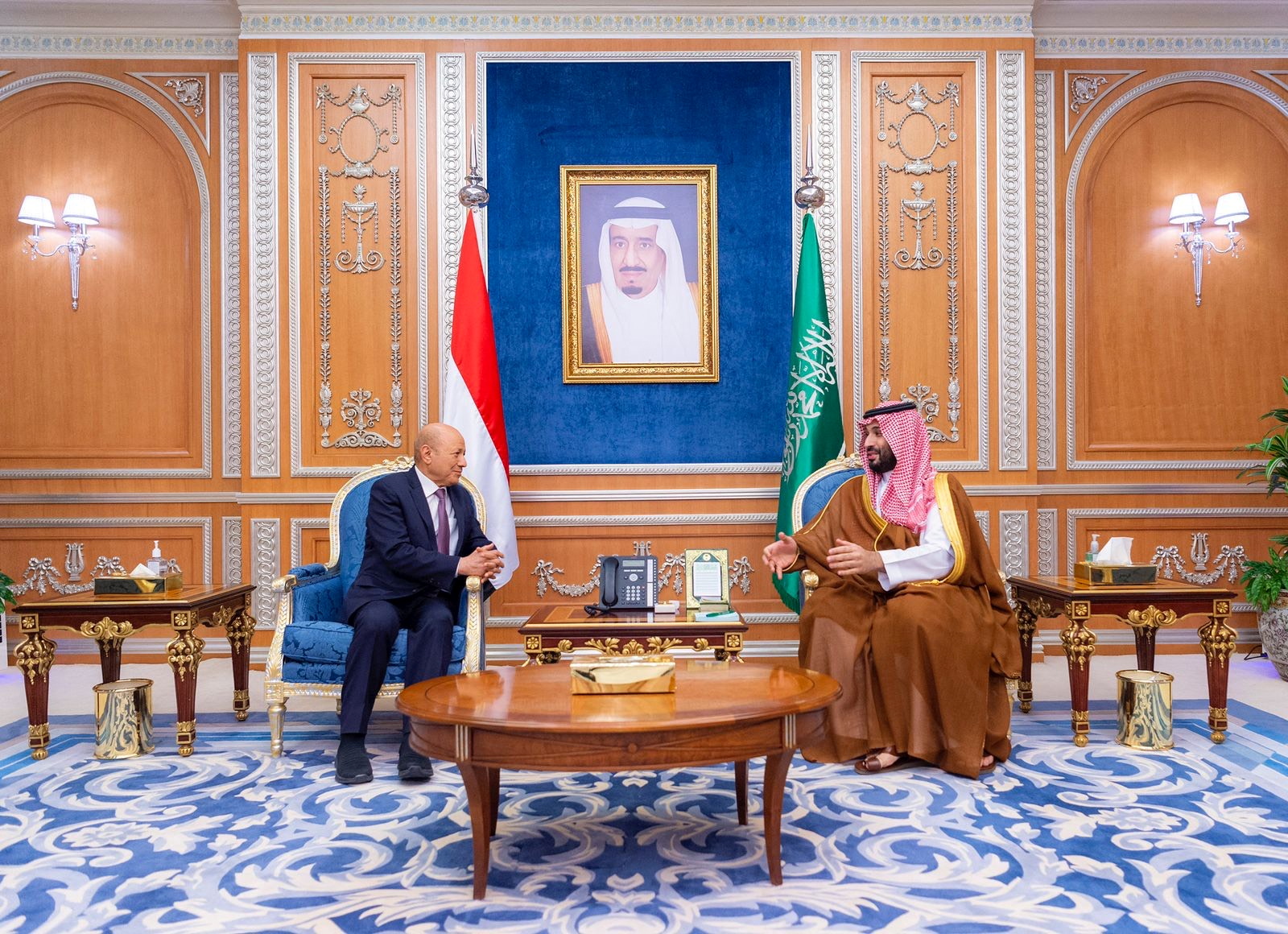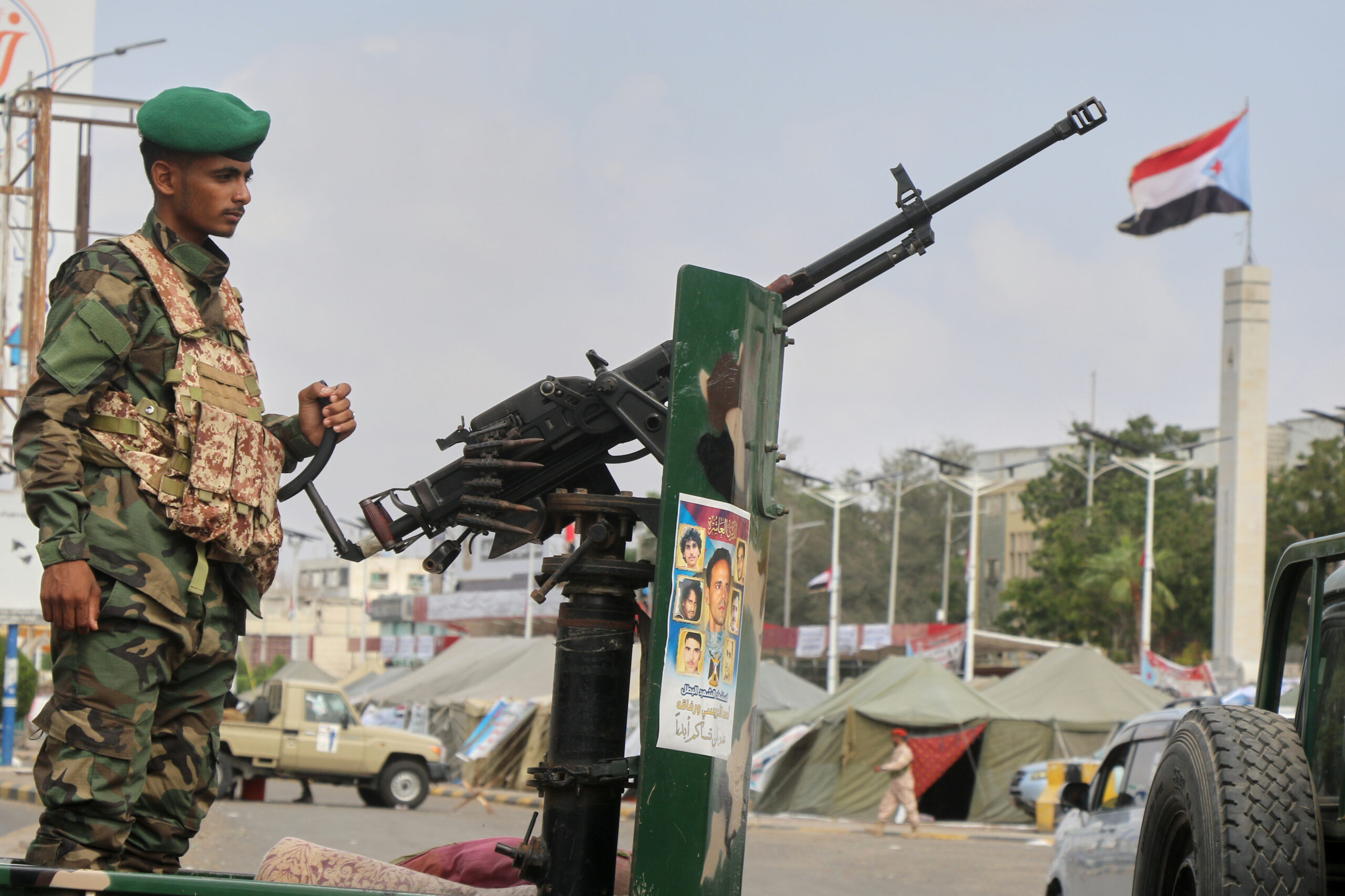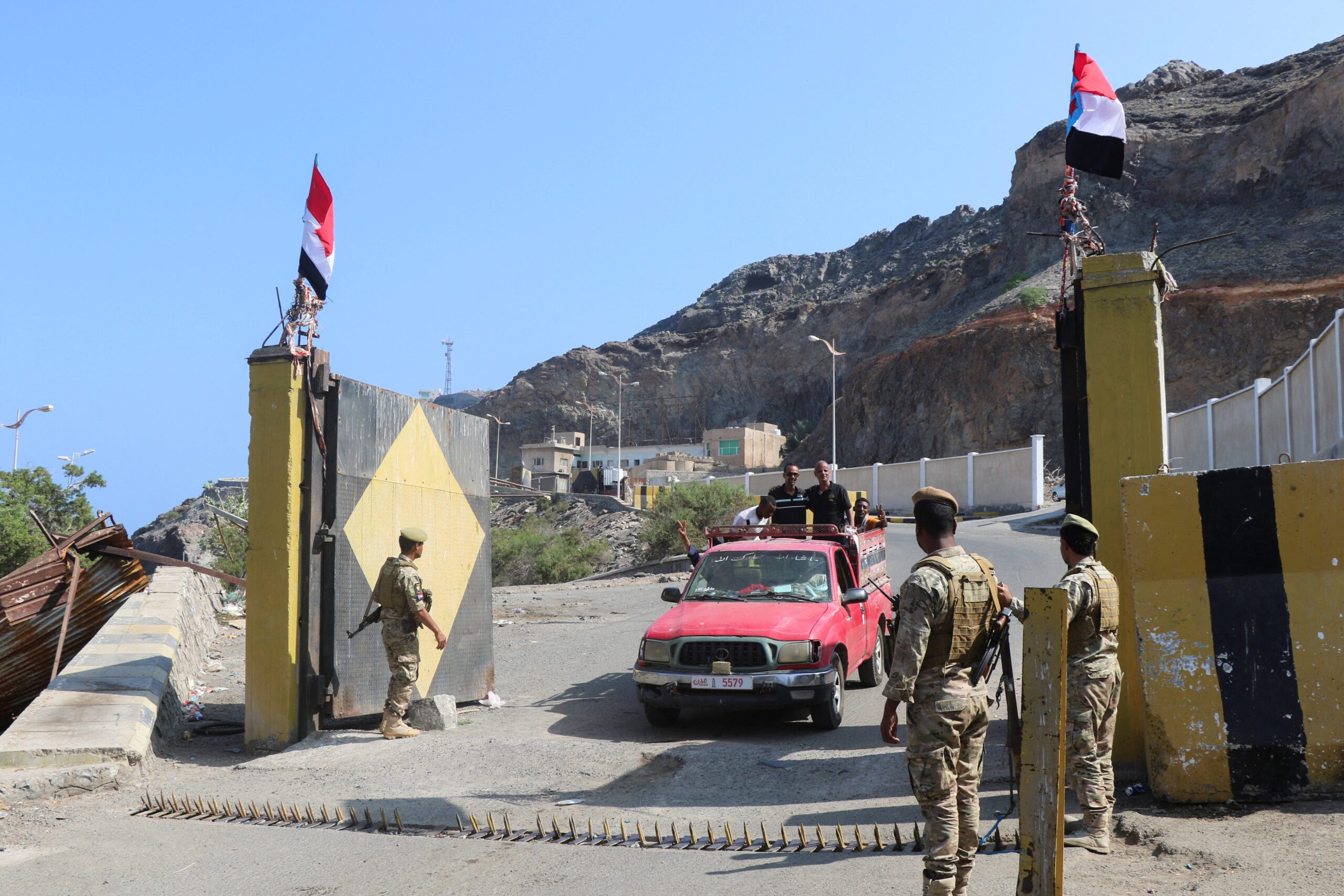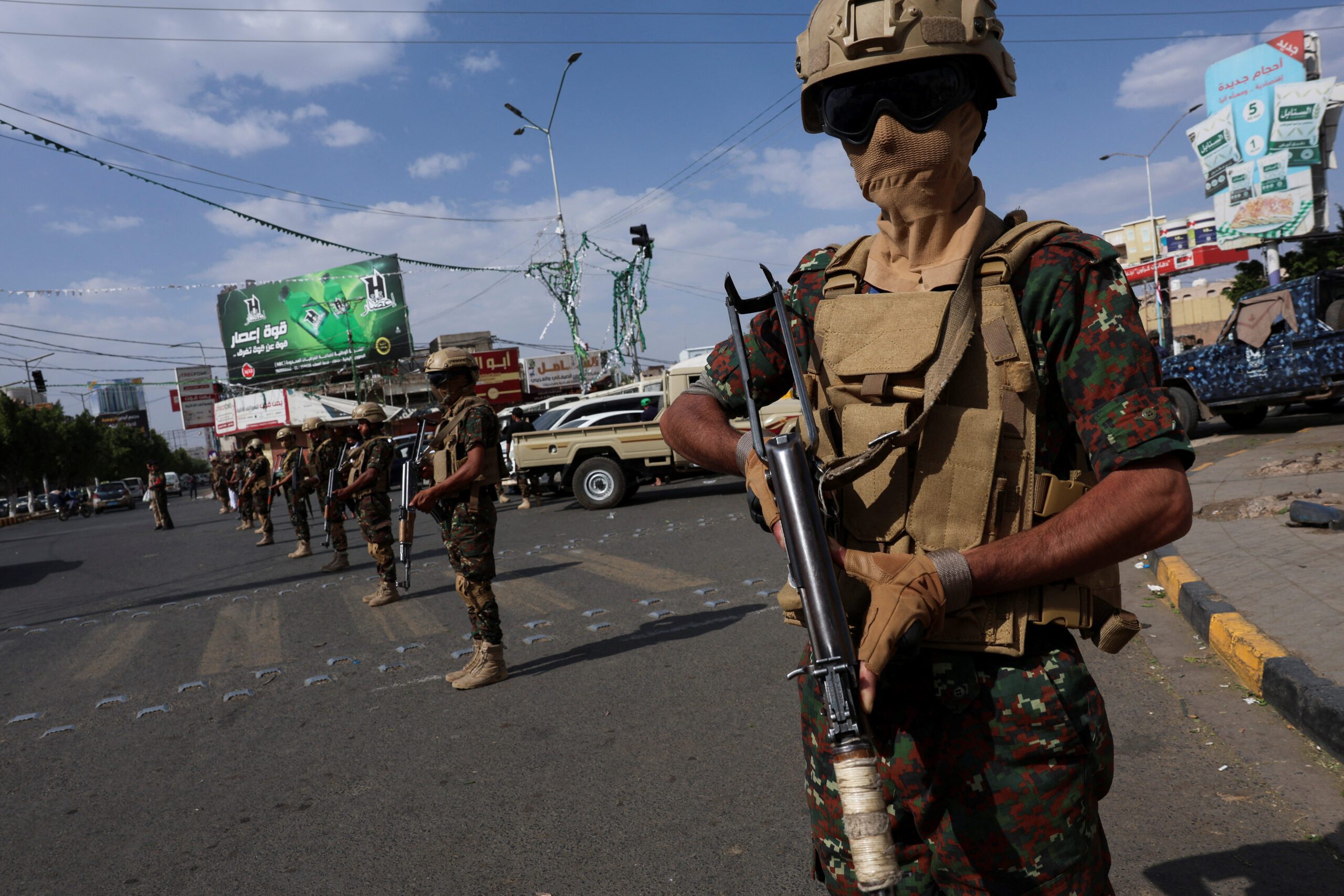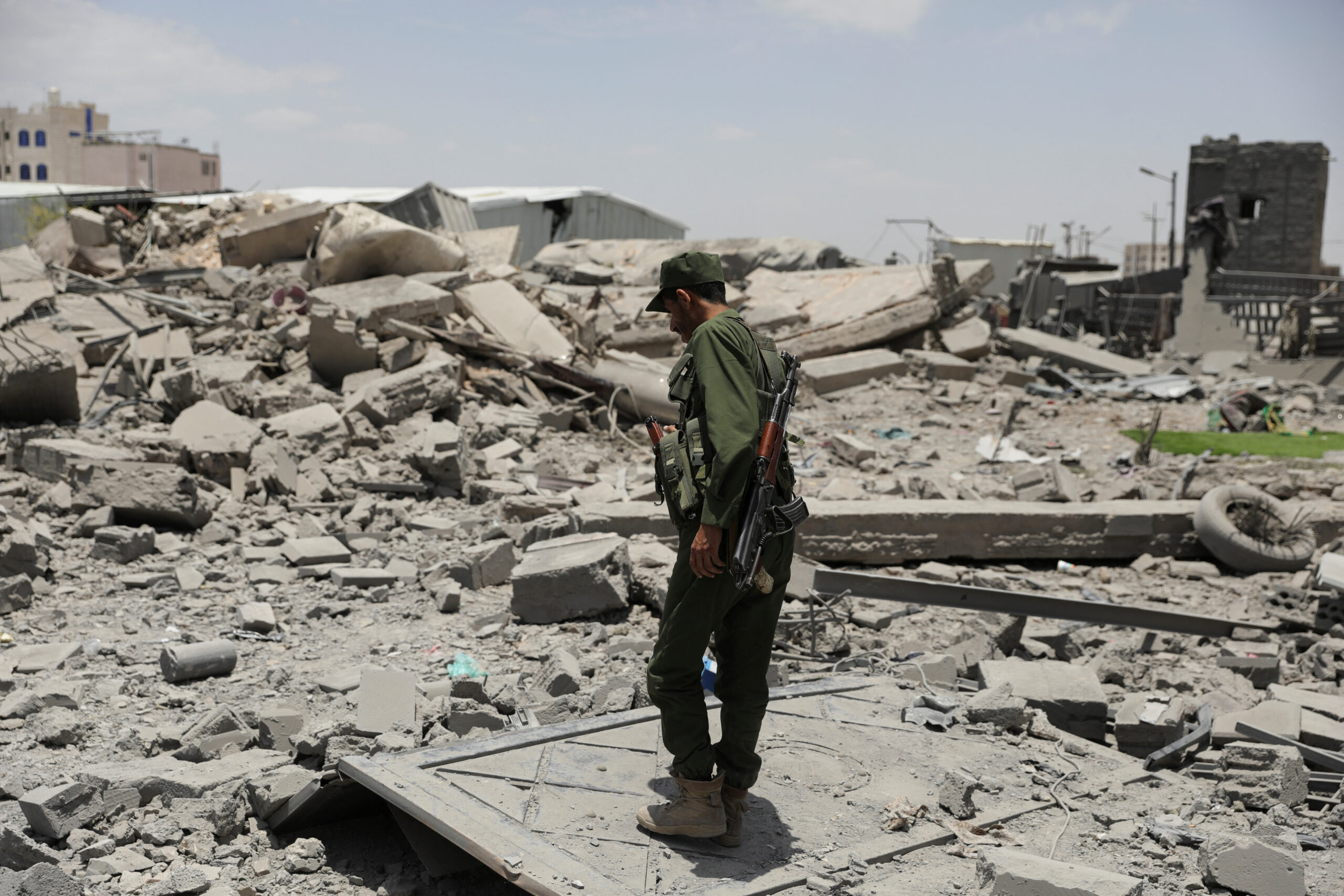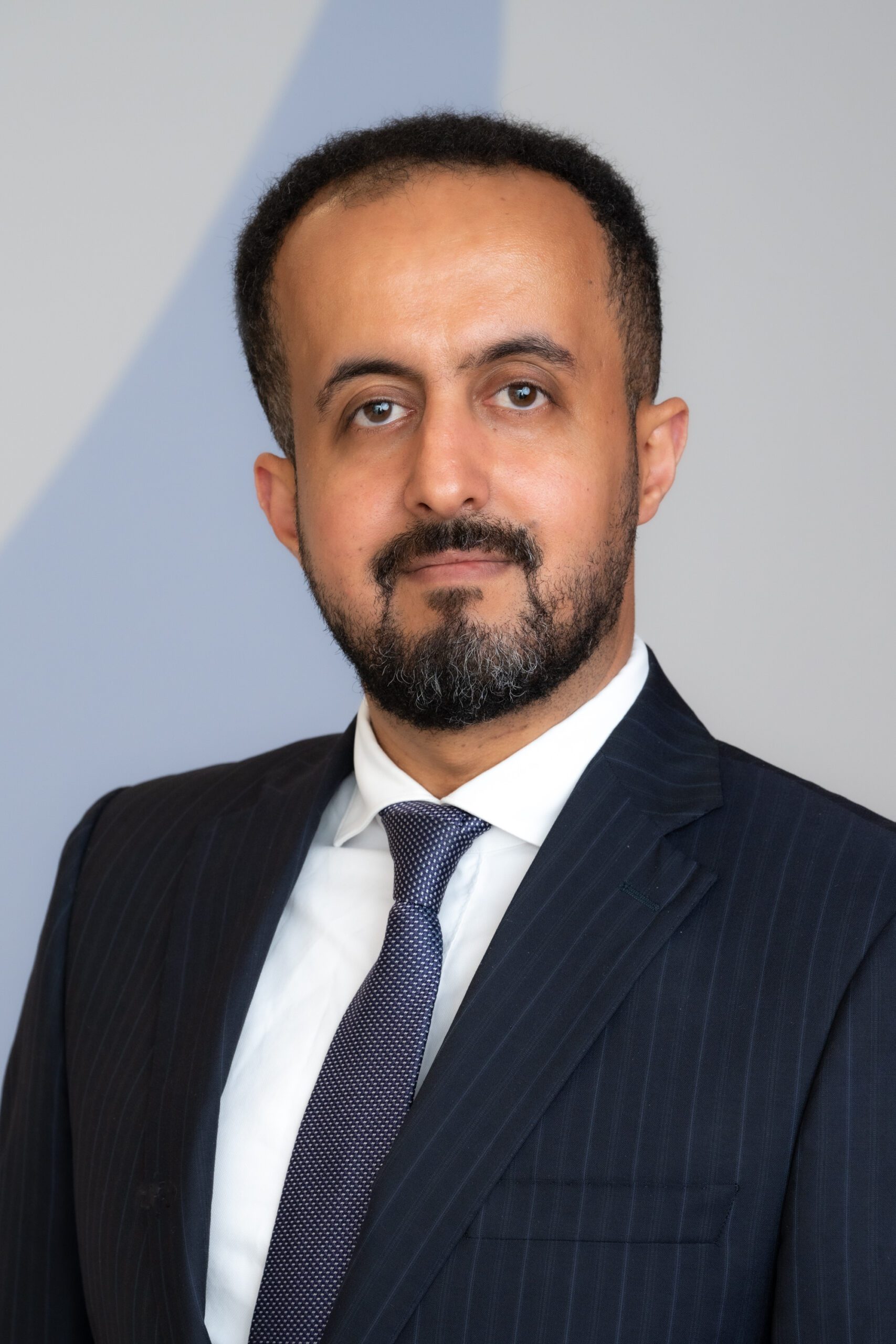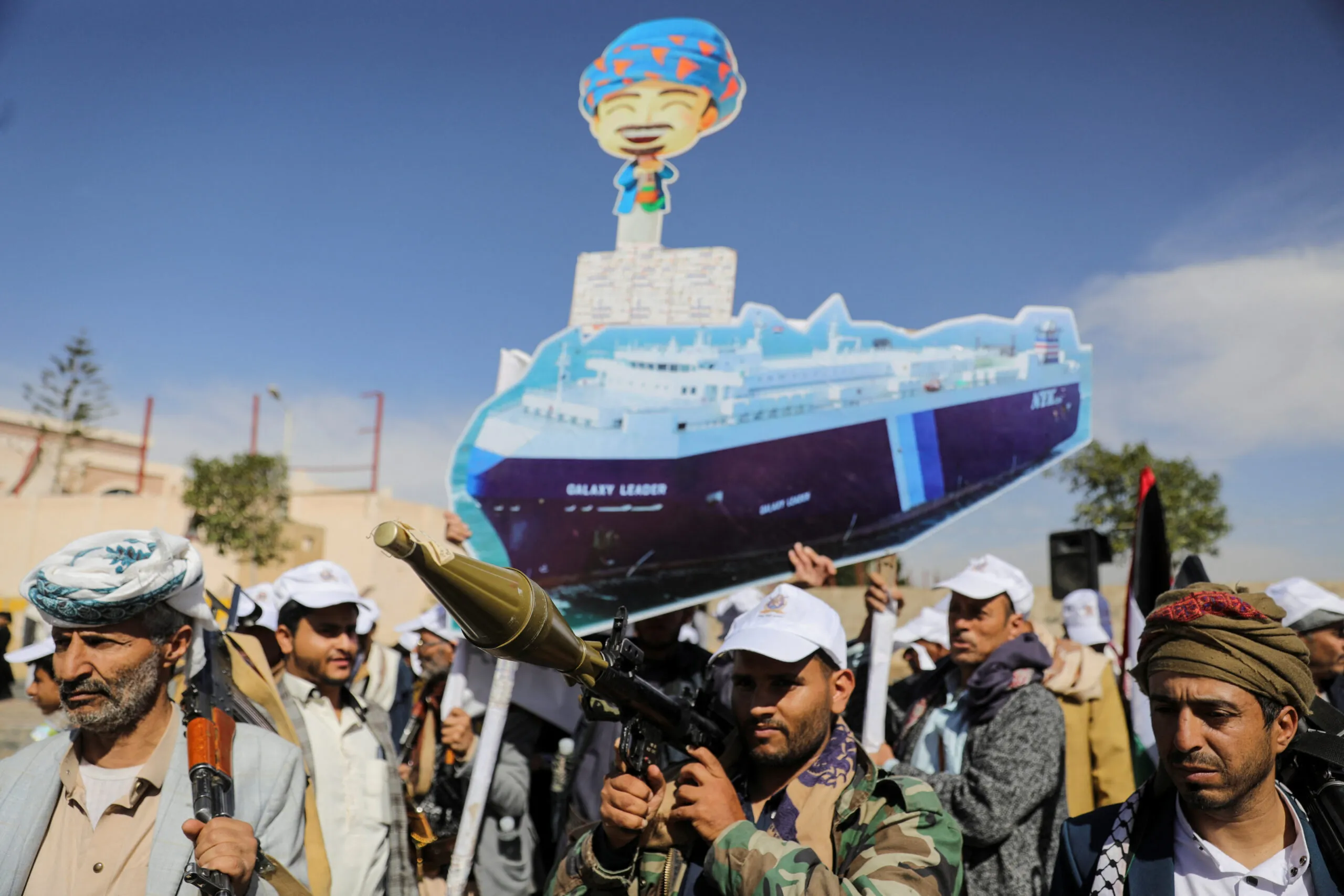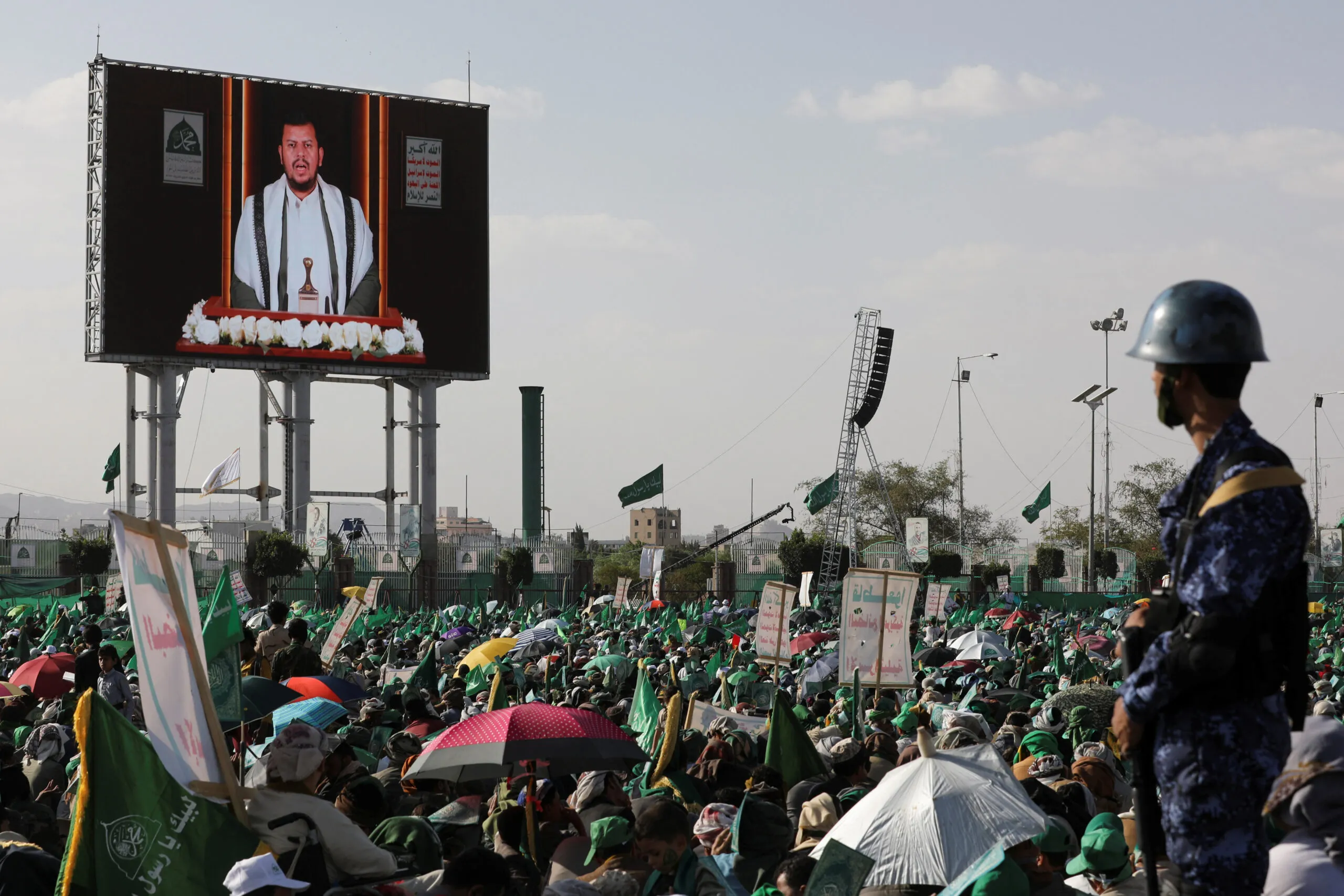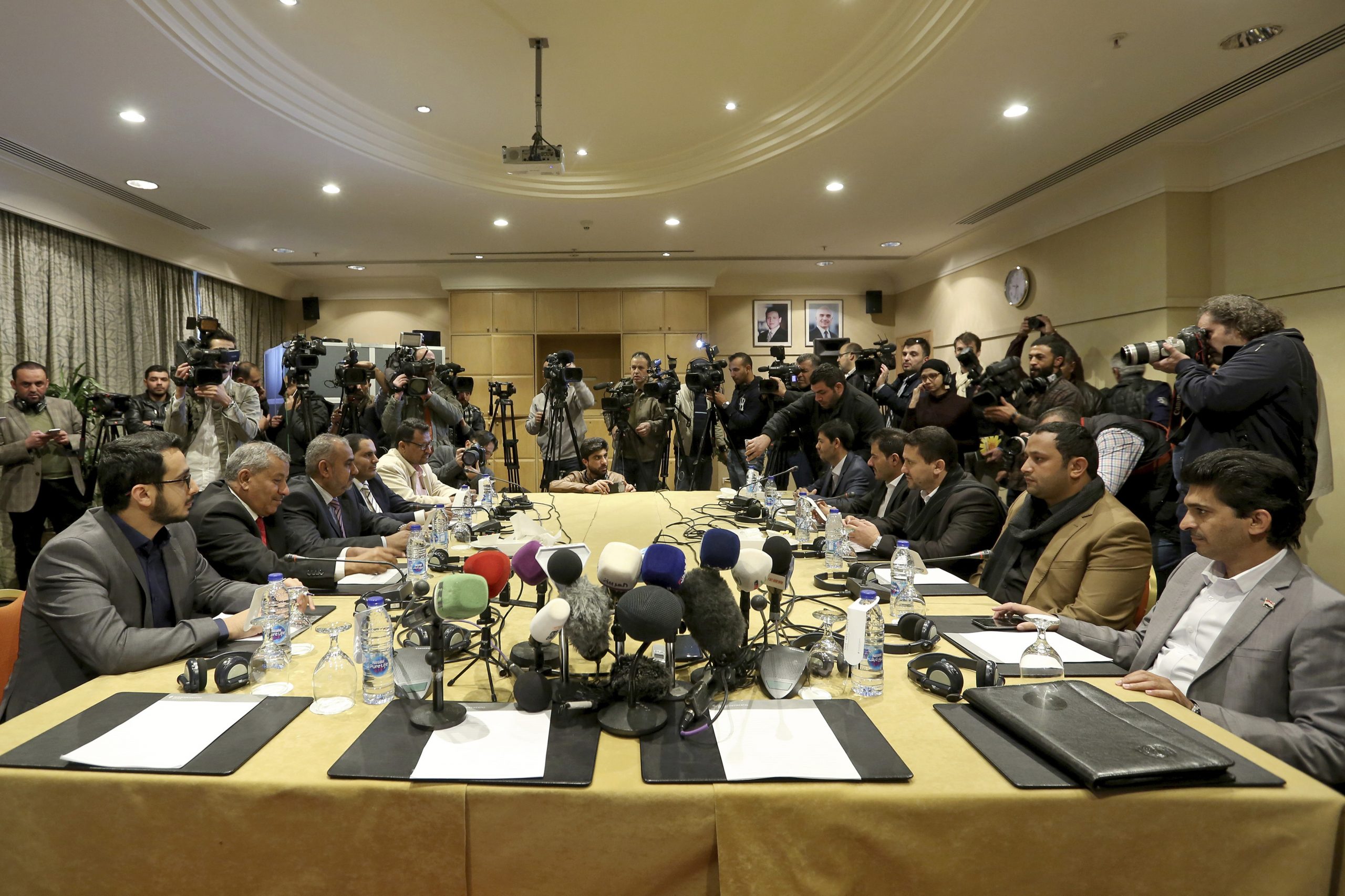Why Yemen’s Truce Collapsed
At the moment, the Houthis believe they have more to gain from war than peace.
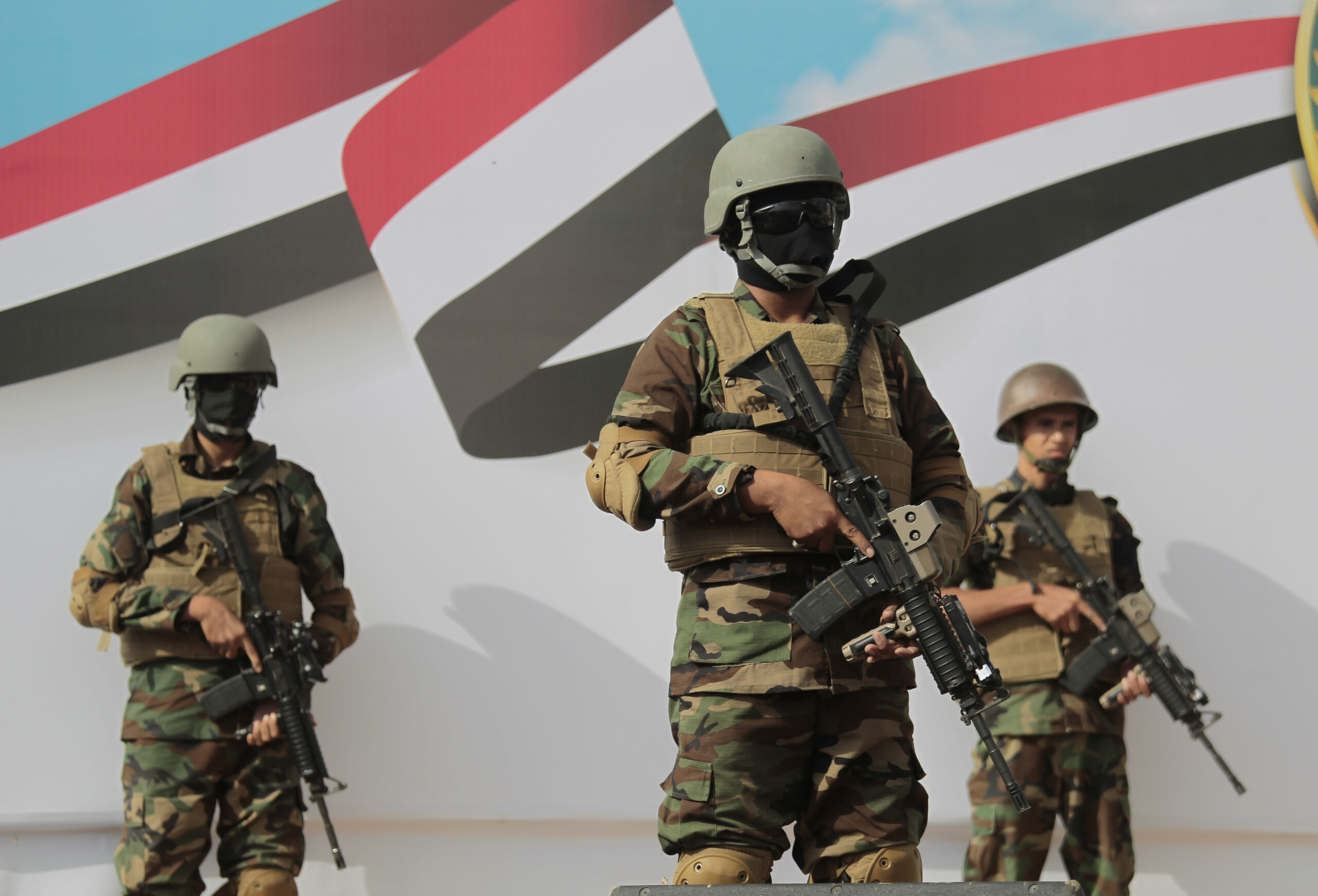
Despite a frenzied last minute round of shuttle diplomacy and significant international pressure, Yemen’s six-month truce expired October 2. In the weeks since, the Houthis have twice used drones to attack oil ports in Shabwa and Hadramout, Saudi Arabia went on high alert over a possible Iranian attack, and the U.S. Navy interdicted a fishing vessel en route to Yemen with a “large quantity” of explosive material from Iran. Plus, there were the usual sniper attacks, clashes, and strikes that have come to characterize eight years of war in Yemen.
For Yemeni civilians the summerlong truce, which was extended twice for two-month intervals, was a welcome respite from the war. According to the United Nations, casualties across the country dropped 60%, fuel imports into the Houthi-controlled port of Hodeidah quadrupled, and the Sanaa International Airport reopened with flights to Cairo and Amman, allowing thousands of people to seek medical care.
Those are all, of course, positive developments. Crucially, however, neither U.N. Special Envoy Hans Grundberg or his U.S. counterpart, Special Envoy Timothy Lenderking, were able to transform the truce into a foundation for a “permanent cease-fire,” which Grundberg described as his goal in April.
In large part this is because the international community and the Yemeni actors saw the truce differently. For the international community, the truce was supposed to be a first step toward Grundberg’s goal of a permanent cease-fire, which would then set the stage for a comprehensive peace agreement. For the Yemeni actors, particularly the Houthis, the truce was never anything more than a strategic pause that would allow them to regroup.
In April, when the truce was implemented, the Houthis were struggling to recover from a succession of losses on the battlefield. The Houthi offensive on Marib and the governorate’s oil and gas fields had bogged down, and United Arab Emirates-backed troops from the Giants Brigades had pushed Houthi forces out of Shabwa, erasing many of the territorial gains the Houthis had made in 2021. For the Houthis, then, the truce came at an ideal time. It allowed them to pause, take a breath, and relieve some domestic pressure through increasing oil imports and allowing people to travel out of Sanaa.
The beginning of the truce also came at an opportune time for the U.N.-recognized Yemeni government. At the time, Abd Rabbu Mansour Hadi was still president, but within a week of the truce, Hadi was unceremoniously pushed out by Saudi Arabia and replaced by a fractious eight-man council. This Presidential Leadership Council, which was largely selected by Saudi Arabia and the UAE, was intended to form a sort of Yemeni “Team of Rivals.” Saudi Arabia and the UAE hoped that the eight men, and the groups they represented, would be able to set aside their differences and form a united front to combat the Houthis.
For the newly formed council, then, the extensions of the truce on June 2 and August 2 made sense. Like the Houthis, the council needed time to organize, coordinate, and cooperate. Not surprisingly, however, that didn’t happen. Instead of cooperating, two of the groups on the Presidential Leadership Council, Islah and the Southern Transitional Council, who have distinctly different views on the future of the Yemeni state, started fighting one another in Shabwa.
Grundberg made a valiant effort in late September and early October to extend the truce yet again, asking the parties for six more months. As part of his proposal, Grundberg suggested that the Yemeni government fulfill its promise to pay the salaries and pensions of civil servants in Houthi-controlled areas. This has been a sticking point for the Houthis, who lack the financial reserves to pay the salaries themselves.
As soon as Grundberg made his suggestion, the Houthis countered by demanding that the pool of civil servants be expanded to include police, security, and military forces, essentially asking the Yemeni government to pay the salaries of the soldiers it was fighting. Lenderking called the demand “maximalist and impossible.” But the Houthis held their ground and the truce expired.
Two weeks later, according to Abdulghani Al-Iryani of the Sanaa Center, Saudi Arabia dangled another carrot, inviting the Houthis for direct talks in Riyadh. Like the civil servant salaries, direct talks with Saudi Arabia had long been on the Houthis’ list of demands. But just as with Grundberg’s proposal, the Houthis pocketed the offer and countered by demanding Saudi Arabia lift all sanctions and pay all salaries, including those of the security and military personnel, as a precondition for talks.
Not surprisingly, the talks didn’t happen.
As both of these instances make clear, the Houthis are not interested in extending the truce or using it as a building block for a more comprehensive settlement. During the summer they viewed the truce as in their best interests, just as now they see the continuation of the conflict as the best way to achieve their goals.
At the moment, the Houthis believe they have more to gain from war than peace.
The views represented herein are the author's or speaker's own and do not necessarily reflect the views of AGSI, its staff, or its board of directors.

